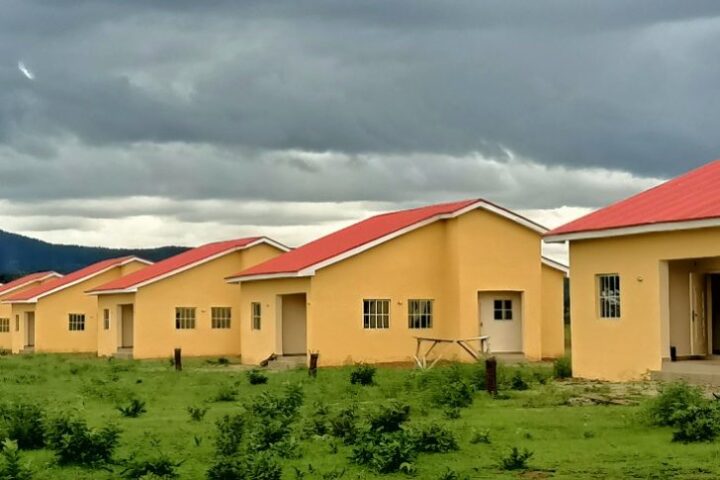
What is a Rental Lease Agreement?

A rental lease contract is a legally binding file created for the landlord and tenant when renting a residential or commercial property. It supplies clarity on the expectations and commitments of both parties throughout the rental duration. The contract usually consists of the rent amount, payment due dates, security deposit amount, length of tenancy, upkeep responsibilities, guidelines, and terms.
A rental lease contract is necessary due to the fact that it develops a clear understanding between the proprietor and occupant, outlining each celebration's obligations and rights throughout the rental period.
You can use a rental lease contract for various kinds of homes. Examples include:
- Apartment
- Condo
- Duplex
- House
- Townhouse
By signing a rental lease arrangement, the property manager and occupant concur to comply with the conditions defined, promoting a much better landlord-tenant relationship.
These files are likewise described as:
- Apartment leases
- House rental agreements
- Lease contracts
- Lease forms
- Rental arrangements
- Rental agreements
- Rental occupancy contracts
- Tenancy agreements
Who Needs a Rental Lease Agreement?
A rental lease contract is an essential file for numerous organizations and individuals, consisting of:
- Homeowners searching for tenants
- Tenants looking for a living or commercial space to rent
- Individuals renting their residential or commercial property to friend or family
- Landlords
- Tenant placement services
- Residential or commercial property supervisors
- Small companies looking for a service setting
Anyone who desires to rent a residential or commercial property, consisting of a home or space, business structure, or land, ought to utilize a rental lease agreement. Failing to do so could result in:
- Lost lease cash
- Liability for unlawful activities tenants participate in on the residential or commercial property
- Penalties for unsettled utility expenses
- Costly residential or commercial property damage repair work
- Don't take any possibilities! Protect yourself and your renters by using a rental lease agreement.
Dolan W.
Bryan B.
Ryan D.
Benjamin G.

Essential Elements of a Rental Lease Agreement
Below are some important terms for you to know that need to be included in a rental lease arrangement:

- Names and Contact Information: The rental lease agreement need to determine the property owner, renter, and any other occupants and supply their contact details.
- Residential or commercial property Description: The rental lease agreement ought to include an in-depth description of the residential or commercial property, including its address, the kind of residence, the variety of bed rooms and bathrooms, and any other appropriate details.
- Rent Details: The lease arrangement ought to detail the lease quantity, payment due date, and payment technique. It needs to likewise define any charges for late payments and bounced cheques.
- Down payment: The rental lease arrangement need to detail the down payment quantity and any conditions for its return or forfeiture.
- Regard to the Lease: The rental lease agreement should define the length of the lease, including the start and end dates.
- Maintenance Responsibilities: The rental lease arrangement should lay out the obligations of both the landlord and renter for the repair and maintenance of the rental residential or commercial property.
- Rules and Regulations: The rental lease contract ought to develop any guidelines and guidelines the tenant should follow, such as pet policies, smoking cigarettes restrictions, sound ordinances, and other relevant details.
- Renewal and Termination: The rental lease contract must describe the lease renewal and termination procedures, consisting of any notice requirements and penalties for early termination.
Standard rental lease arrangements often provide additional information beyond the fundamental terms of the lease. Some of the information that might be consisted of are:
- Signing incentives or concessions that are offered to entice potential renters to rent, which might include complimentary rent for a set time, discounts on the rental price for the period of the lease, or improvements to the residential or commercial property such as brand-new floor covering or appliances.
- Information on whether there is an option to acquire the residential or commercial property, which is in some cases understood as rent-to-own.
- Options for renewing the lease, which can be valuable for occupants who want to stay in the residential or commercial property for a prolonged amount of time.
- Details about the methods readily available for disagreement resolution, such as arbitration or mediation, which can help to prevent or fix disputes in between property managers and occupants.

Types of Rental Lease Agreements
- Fixed-Term Lease: This type of lease contract has a specific start and end date, and both the property owner and occupant concur to the length of the lease.
- Month-to-Month Lease: This lease contract does not have a particular end date and continues monthly up until the property owner or renter provides the notice to end the lease.
- Sublease Agreement: This agreement takes place when a renter rents a portion or all of their rental residential or commercial property to another renter.
- Roommate Agreement: This lease arrangement is between two or more tenants who share a rental residential or commercial property. The arrangement lays out the terms and duties of each roomie, including rent payments, utility bills, and other shared expenditures.
- Commercial Lease Agreement: This lease arrangement is for rental residential or commercial properties for organization functions, such as workplace, retail area, or storage facilities. Commercial lease agreements generally have more complex terms than residential leases.
- Standard Residential Rental Lease Agreements: A legal contract in between a property manager and tenant, defining conditions of leasing a domestic property.
- Room Rental Agreements: A legal agreement between a landlord and an occupant for the leasing of a room within a bigger residential or commercial property, such as a home or apartment.
- Land Lease Agreements: A contract in between a landowner and an occupant, allowing the occupant to utilize the land for a specified purpose in exchange for rent payments.
- Rent to Own Lease Agreements: A rental arrangement that consists of an alternative for the occupant to purchase the residential or commercial property at a later date, with a portion of the lease payments applied towards the purchase cost.
Key Considerations Before Signing a Rental Lease Agreement
Here is a breakdown of some vital things to think about before signing a rental lease agreement.
- Rent and Associated Costs: Review the rent quantity and associated costs such as utilities, parking costs, or maintenance expenses to ensure you can afford the monthly payments.
- Lease Term: Review the lease term to ensure it lines up with your needs and timeline. If you're uncertain about your long-term plans, think about a month-to-month lease instead of a fixed-term lease.
- Maintenance Responsibilities: Understand the maintenance obligations outlined in the rental lease arrangement and guarantee you're comfortable with them. If there are any concerns or questions, discuss them with the property manager before signing the lease.
- Rules and Regulations: Review any rules and policies detailed in the rental lease arrangement, such as pet policies or noise regulations, to ensure you can comply.
- Security Deposit: Understand the security deposit quantity and any conditions for its return or loss.
- Termination and Renewal Procedures: Review the termination and renewal procedures to ensure you understand the requirements for restoring or ending the lease.
- Landlord-Tenant Relationship: Consider the landlord-tenant relationship and how comfortable you feel working with the landlord. Ensure you know their interaction design, availability, and responsiveness to problems or concerns.

Key Terms for a Rental Lease Agreement
- Lease Term: This refers to the duration that the rental lease arrangement is in effect. It can be a fixed term (12 months) or a month-to-month contract.
- Rent: This describes the amount of money the renter need to pay the property manager for the right to inhabit the rental residential or commercial property. Rent is normally paid monthly, although it can in some cases be paid weekly or bi-weekly.
- Down payment: This is an amount of money paid by the tenant at the beginning of the lease term to protect the landlord versus damages or unpaid rent.
- Maintenance and Repair: This describes the duty of the proprietor and tenant to maintain the rental residential or commercial property in good condition. The lease agreement need to define which celebration is responsible for particular repair work and maintenance tasks, such as repairing appliances or maintaining the landscaping.
- Termination Clause: This is a provision in the lease contract that outlines the situations under which the proprietor or the occupant can liquify the lease before completion of the lease term. The termination stipulation might consist of notice requirements, penalties for early termination, and other important information.
Final Thoughts on a Rental Lease Agreement
A rental lease agreement is a contract that discusses the rights and obligations of both the landlord and the occupant and works as an important tool for safeguarding the interests of both celebrations associated with a rental arrangement. However, the terms and conditions related to it can be made complex for individuals to understand. So, legal counsel is the best alternative for all parties.








